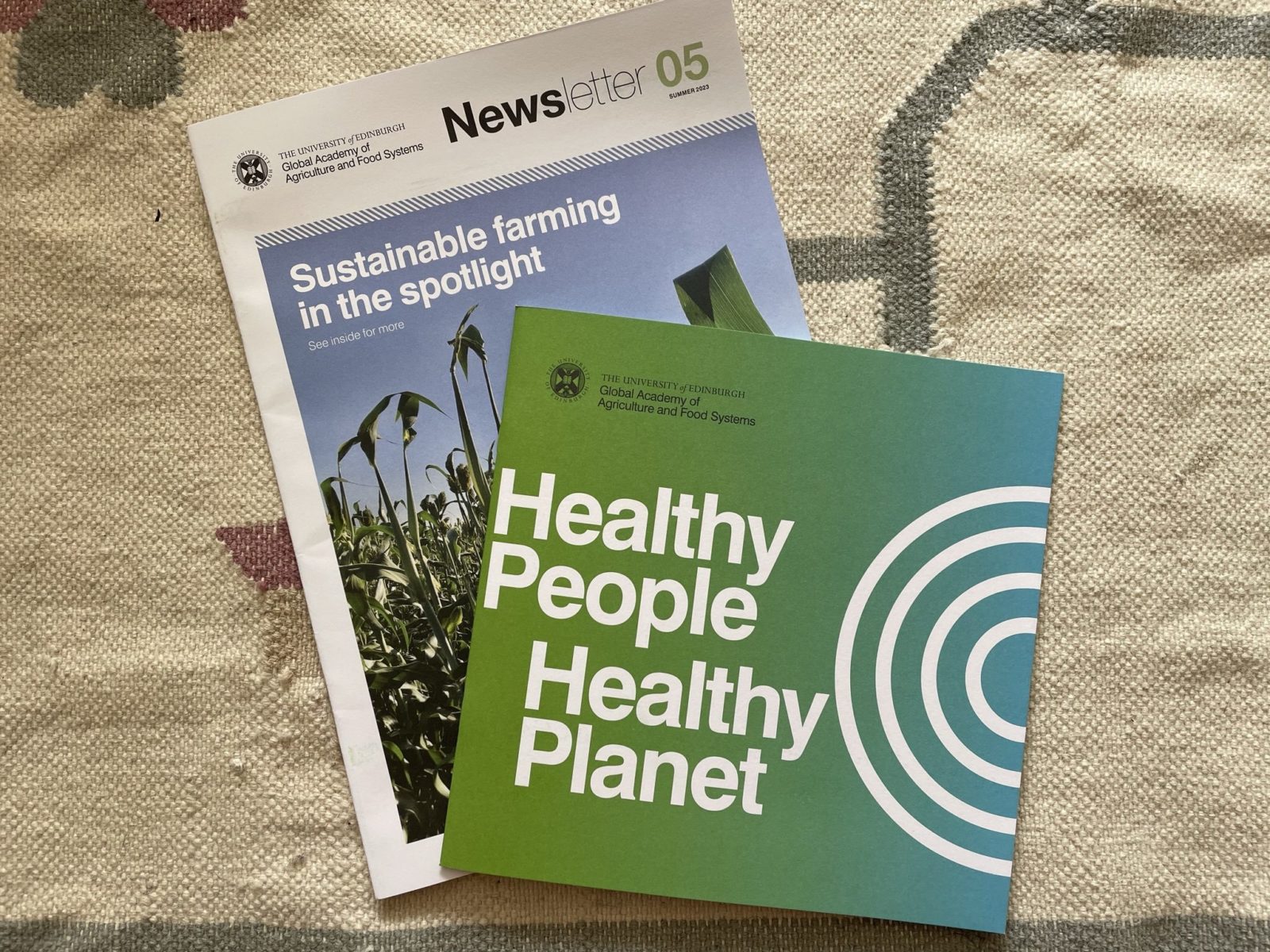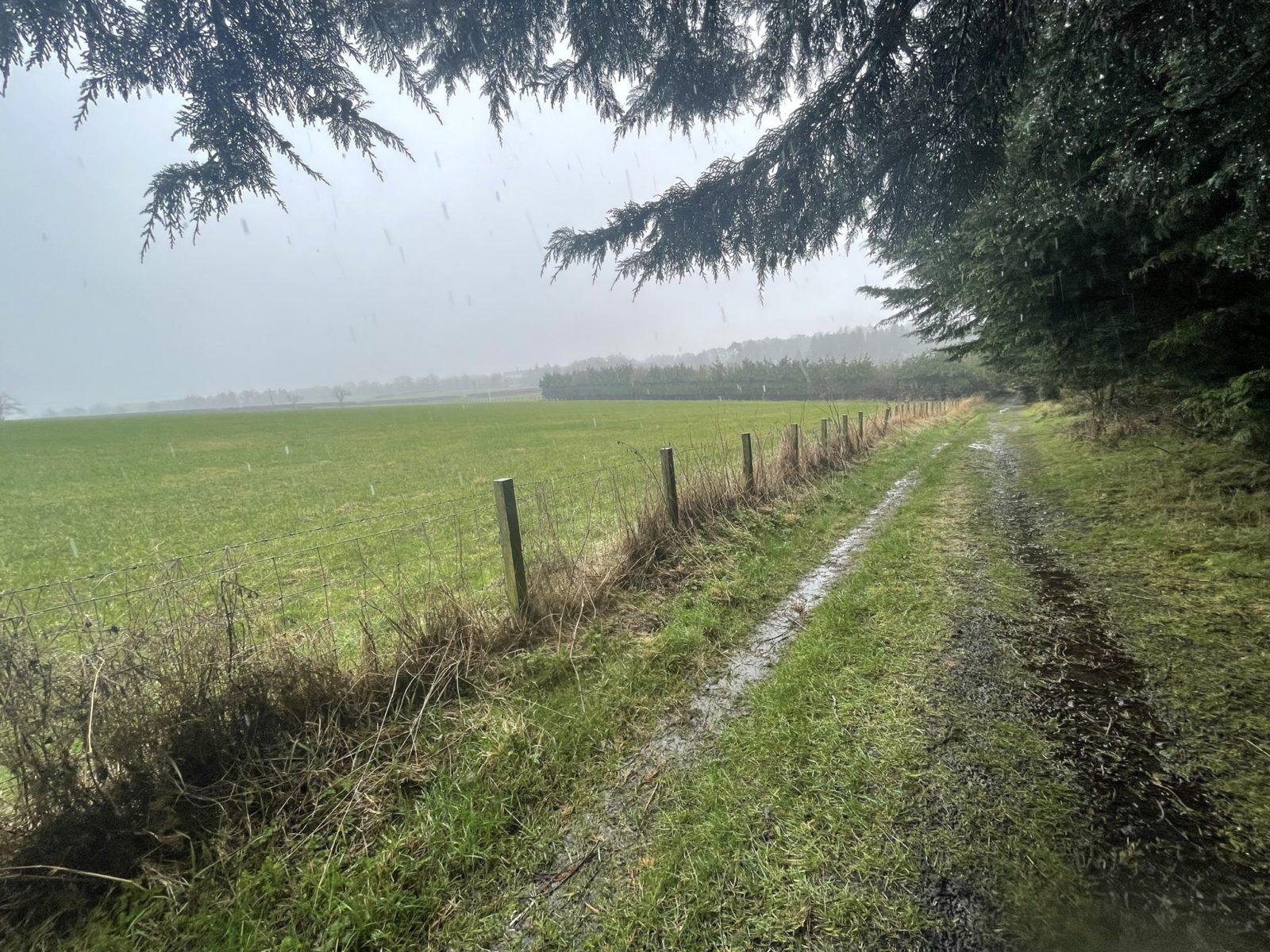- News
Reflections on 1st Annual Global Academy of Agriculture and Food Systems Symposium

The 1st Annual Global Academy of Agriculture and Food Systems Symposium (that's wordy!) took place on 15th March at The University of Edinburgh's Roslin Campus. Our Food and Climate Action Project Coordinator for Urban Agriculture, Ebany Dohle, went on over to find out what it was all about!
The theme for the inaugural event was ‘Supporting Food Systems Transformation with Data’. The work of the Global Academy of Agriculture and Food Systems comes under two broad themes – Food System Transformation, and Healthy People, Healthy Planet. Across and among these, we are concerned with the interface between science, policy and industry; data-driven innovation; and governance and ethics.
The goal of the symposium is to highlight some of the work by researchers and their global collaborators, to support our vision of healthy people and a healthy planet, through regenerative and ethical food and land use systems.
After trekking through a wet field after a 2-hour bus journey following a Google Maps recommended route, Ebany finally arrived at the semi-rural Roslin Institute. Below is her written reflection.

Big data was the focus of the day, and researchers from the University of Aberdeen (McBey, MacDiarmid & McCormick 2024) presented on how big databases can be used to support an understanding of the food system and an understanding of how behavioural changes in food consumption will impact other items on the food chain. For example, if we know beef tends to be eaten with pasta, how will a reduced intake of beef affect how much pasta is consumed overall? This database was able to generate a meal plan that would result in a 90% reduction of our carbon footprint, but the meal plan consisted of 40% bran flakes, 30% pasta, 20% peas and 10% chocolate. The challenge is then, how to work with the datasets to create a meal plan that is still delicious, consumable, and reduces the impact that our current consumption patterns have on the planet. They managed to come up with a meal plan with a 25% reduction of impact.
Their study identified positive and negative factors that would affect behaviour change. For example, emphasising that veg is more penny friendly, making veggie options more appealing and tasty, and introducing structures such as "Meat-free Mondays" can all have positive impacts on the consumption of veg. On the other hand, it was found that celebrity endorsements and food labels had no impact on consumption patterns.
There was also a lot of talk about the need for transdisciplinary collaboration and the challenge of including nuance from different contexts around the world in the way that big data is collected. For example, a research project designed in the UK looking at traditional farming practices around the world needs to take into account the assumptions that are being made about shared understanding or knowledge, and relationship to the planet. I found it particularly interesting that no one spoke about language at all, and the impact that speaking a different language will have on your understanding of concepts (and the world) that have been generated in a different language to your mother tongue.
Michael Clark from Oxford University presented on how to calculate the environmental impact of foods broken down by ingredients, as well as the push from government to get climate impact labelling on all food packaging. Calculating impact and labelling, it would allow consumers the opportunity to compare the impact that a carton of soy milk has to that of almond, oat and dairy milk for example, or compare different jars of pesto. Although there is ample evidence that demonstrates labelling has no impact on consumers' behaviour, the idea is that labels would allow everyone to have a shared language and metric to be able to talk about this. It could also be used as a base for other interventions. For example if you are doing an online shop, algorithms could be set up which recommend the more environmentally friendly options to consumers.
Although it was mentioned by one participant, there wasn't a huge focus on the role that community organisations play within these conversations, and the positive impact they can have for motivating change in food consumption patterns. One presenter, Nathen Jensen from "Jameel Observatory: Early Action to Promote Food Security" talked about the importance of moving away from post-crisis response and towards anticipatory action, meaning working with communities to understand what their needs are before a crisis happens. The example he gave was the difference between providing food aid after an agricultural area has experienced flooding, to putting measures in place before the flooding happens which results in fewer crops being lost. The solution could be as simple as investing in waterproof containers to store grains for example.
All in all, it remains important for our community food workers to be connected and aware of academic developments within food, climate and sustainability. Equally, our community food workers need to be considered and consulted as experts in how on the ground adaptations and communications can inform policy.
